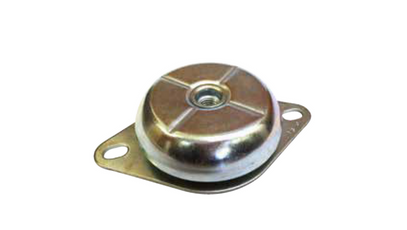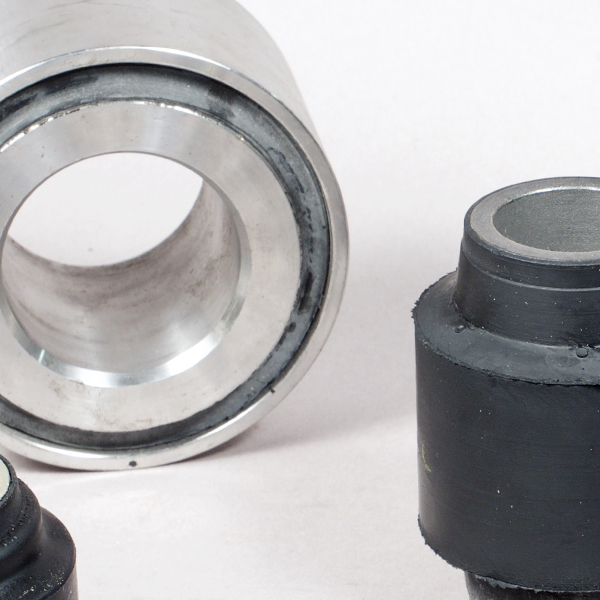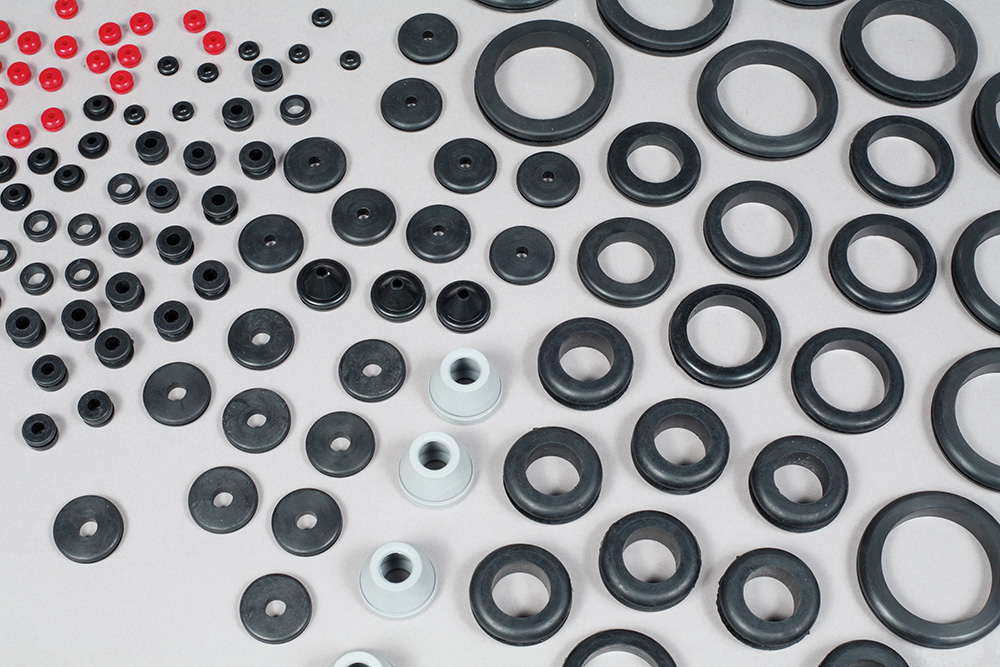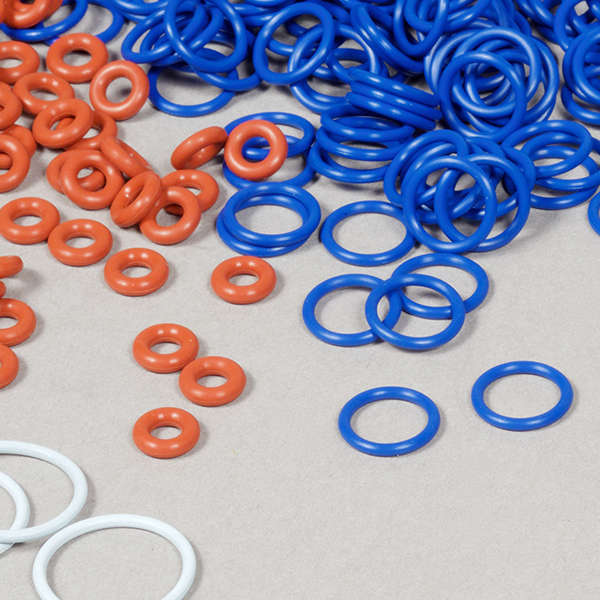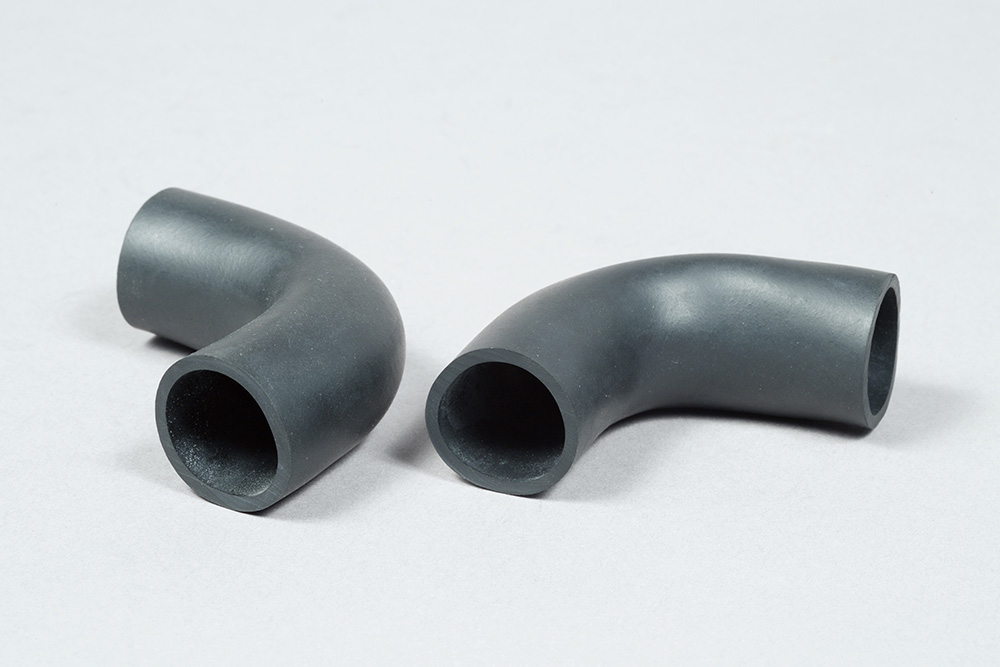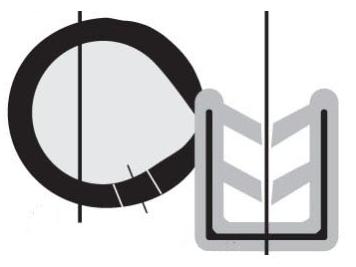Rubber Parts & Automotive Manufacturing Applications
RPM offers advanced rubber molding solutions tailored to meet precise specifications and industry standards. With expertise in compression, transfer, and injection molding, we deliver high-quality, durable rubber components designed for automotive applications.
| Application | Common Parts | Common Processes |
|---|---|---|
| Oil Coolers | Grommets, bushings and rubber bumpers used to reduce stress fatigue and protect brackets from wear. | Compression molding for durability and high resistance to tearing, injection molding for complex shapes and precise tolerances. |
| Exhaust Hangers | High-heat silicone isolators, used to reduce stress fatigue and protect brackets from wear. | Compression molding for long-lasting durability, injection molding for custom shapes and parts, die-cutting for precise component production. Injection molding for intricate parts, and vulcanization for improved mechanical properties. |
| Isolators | Various NVH mounts and bushings to buffer sound and reduce the effects of road and vehicle vibration sources. | Injection molding for intricate parts, precision die-cutting for custom shapes, and vulcanization for improved mechanical properties. |
| Doors & Windows | Extruded seals to reduce sound and protect from weather. | Extrusion for long, flexible seals and tubing, compression molding for durable gaskets and seals, vulcanization to improve chemical and temperature resistance. |
| Grommets | Rubber grommets to isolate wiring, brake/steering lines from vehicle frame and brackets. | Compression molding for robust, wear-resistant parts, transfer molding for strong, flexible components, vulcanization for enhanced impact and abrasion resistance. |
Use our interactive infographic to find rubber parts for your Automotive application:
Tier two components manufacturers need rubber parts for a variety of applications. These rubber parts are used in systems and components that are then sold and shipped to tier one automotive manufacturers. In order to secure contracts with some of the world’s leading manufacturers, tier two companies require the best quality parts and materials in addition to thorough documentation ensuring process analysis and repeatability.
The automotive industry requires excellence in parts manufacturing. RPM Industrial Rubber Parts can help OEMs achieve this with our expertise in the automotive industry. Our commitment to premium quality assurance processes and superior rubber-to-metal bonding capabilities set us apart from other manufacturers.
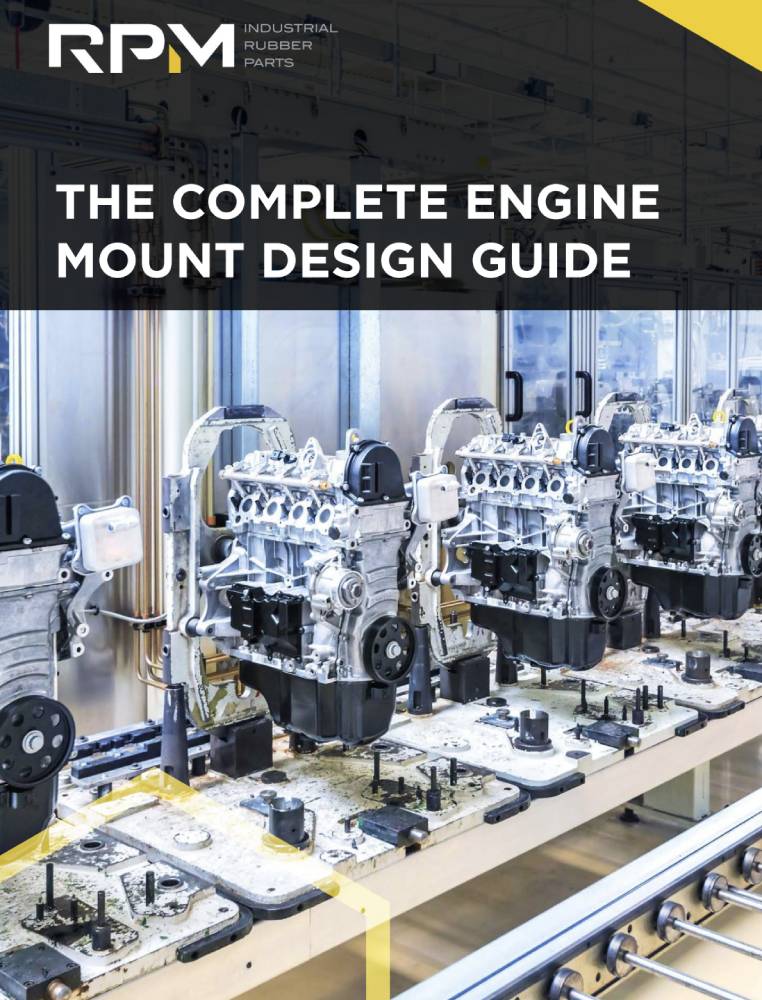
Complete Engine Mount Design Guide
Get a free and valuable resource that covers a plethora of topics, including types, materials, manufacturing processes, industry usage and costs of engine mounts.
Challenges
After a few tumultuous years, the automotive industry is still adjusting to an evolving landscape. Engineering groups require the utmost process transparency and precision in all stages of manufacturing in order to avoid supply chain disruptions, reduce risk, and maximize value.

To secure contracts with the leading automotive manufacturers, component manufacturers must source the right materials and have the processes to ensure repeatability. Here are the challenges:
Supply Chain Visibility
Since the beginning of 2020, the automotive industry has had to adapt to a variety of disruptions and changes in the supply chain. For that reason, supply chain visibility is an essential element for consideration for everyone involved in auto parts manufacturing. The global diversity of the supply chain has posed a unique challenge to the automotive industry. More and more, manufacturers are looking for ways to prevent risk and limit disruptions to their production schedule.
Process Transparency
Process transparency is incredibly important for parts manufacturing in the automotive industry. Customers and engineers purchasing rubber parts are looking for repeatability and PPAP experience to ensure compliance in the supply chain.
Trends
The automotive industry is currently undergoing a massive amount of change. Here are some of the ways rubber manufacturing is meeting the evolving needs of automotive manufacturers.
Emerging Electric Vehicle Technology
Electric vehicles (EVs) are one of the fastest-growing automotive markets in North America. For this reason, rubber parts manufacturers are working to match this growth in new product development and innovation. Rubber parts for battery packs, sensors, and other electromechanical components must be isolated for fatigue life.
New Innovation for Shock Mitigation
There are many exciting opportunities for innovations in the automotive industry as new sensors, control mechanisms, and battery packs come online. As these parts become more commonly used, process repeatability and PPAPS are needed to limit disruptions and ensure their supply chains are kept full.
Frequently Asked Questions

Find quick answers to your questions here or contact us directly for any additional inquiries.
What are the benefits of rubber compression molding?
Compression molding offers several advantages, including high production rates, excellent dimensional stability, and the ability to produce complex shapes with intricate details.
Which is better? Natural rubber or synthetic rubber?
Natural and synthetic rubbers each have strengths. Natural rubber is great for flexibility, while synthetic rubbers can be customized for specific needs like heat resistance. The best choice depends on the specific application.
How do I select a vibration isolator for my application?
To select the right vibration isolator, start by determining the frequency and amplitude of the vibrations, the weight of the equipment, and the desired level of isolation. Contact the team at RPM for assistance.
What is rubber-to-metal bonding?
Rubber-to-metal bonding involves creating a strong and durable connection between rubber and a metal surface, resulting in a composite material that combines the flexibility and shock absorption of rubber with the strength and rigidity of metal.
What is an engine mount and how does it work?
An engine mount is a flexible component that isolates the engine from the vehicle’s frame, reducing vibrations and noise while allowing for slight engine movement during operation.
What is a rubber sandwich mount?
A rubber sandwich mount is a vibration isolation device consisting of two metal plates with a layer of rubber sandwiched between them, used to reduce the transmission of vibrations.
Ready to get started?
Let Us Be a Small Part of a Big Solution: Your Partner in Building Life Changing Products.
Or Call Us: 888-842-5668






